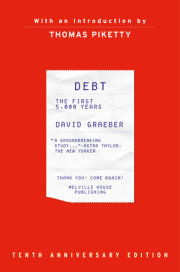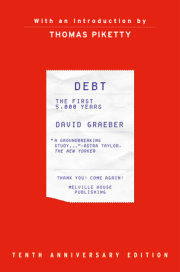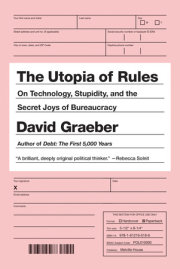Now in paperback, the updated and expanded edition : David Graeber’s “fresh . . . fascinating . . . thought-provoking . . . and exceedingly timely” (Financial Times) history of debt
Here anthropologist David Graeber presents a stunning reversal of conventional wisdom: he shows that before there was money, there was debt. For more than 5,000 years, since the beginnings of the first agrarian empires, humans have used elaborate credit systems to buy and sell goods—that is, long before the invention of coins or cash. It is in this era, Graeber argues, that we also first encounter a society divided into debtors and creditors.
Graeber shows that arguments about debt and debt forgiveness have been at the center of political debates from Italy to China, as well as sparking innumerable insurrections. He also brilliantly demonstrates that the language of the ancient works of law and religion (words like “guilt,” “sin,” and “redemption”) derive in large part from ancient debates about debt, and shape even our most basic ideas of right and wrong. We are still fighting these battles today without knowing it.
“One of the year’s most influential books. Graeber situates the emergence of credit within the rise of class society, the destruction of societies based on ‘webs of mutual commitment’ and the constantly implied threat of physical violence that lies behind all social relations based on money.” —Paul Mason, The Guardian
“The book is more readable and entertaining than I can indicate... It is a meditation on debt, tribute, gifts, religion and the false history of money. Graeber is a scholarly researcher, an activist and a public intellectual. His field is the whole history of social and economic transactions.” —Peter Carey, The Observer
"An alternate history of the rise of money and markets, a sprawling, erudite, provocative work."
—Drake Bennett, Bloomberg Businessweek
"[A]n engaging book. Part anthropological history and part provocative political argument, it's a useful corrective to what passes for contemporary conversation about debt and the economy."
—Jesse Singal, Boston Globe












